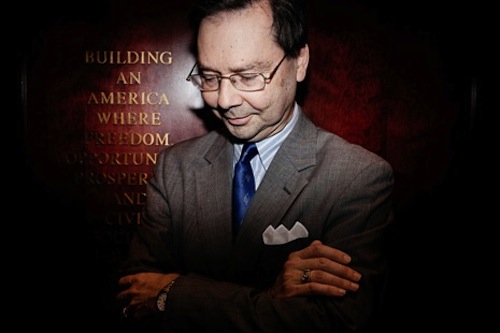Let’s say you lived in an exceptionally honest town where theft was almost unheard of. After years of almost zero larceny, the Honestburg Police Department announced that a massive crime wave had struck the city. Thieves were thick, according to the HPD, and so the cops went house to house confiscating stolen property. Occasionally they would take the television some old lady had for decades, but they returned it to her eventually and, besides, such mistakes are inevitable when battling a crime wave of this scale. So a question: does Honestburg have a theft problem now? On a completely unrelated note, the Ohio Voter Project filed a complaint with the Hamilton County Board of elections alleging that Theresa Sharp was fraudulently registered at the house where she has been living for 30 years.
Hamilton County is in Cincinnati, where Sharp has also been voting Democrat for 30 years. The Ohio Voter Project found her via election roll search software provided by True the Vote, a watchdog group that ostensibly protects “the rights of legitimate voters, regardless of their political party.” True the Vote is an offshoot of a Texas Tea Party group. They are perhaps best know for sending citizen volunteers to challenge voter registrations at polling places in black neighborhoods. Their fraud-detection software flags “electoral irregularities” that include addresses where six or more voters are registered—which is how they found Sharp, and how they also flag inordinately large numbers of low-income families and students.
Meanwhile, in Virginia, a man working for the Republican National Committee was seen throwing voter registration forms in the trash. Colin Small was hired by Strategic Allied Consulting, a firm owned by Nathan Sproul. In previous elections, Sproul was accused of forging registration forms and destroying those filed by likely Democratis; he has been fired by the RNC at least twice, including five weeks ago when one of his employees was caught filing false registration forms in Florida. Sproul is also a paid consultant to the Romney campaign. Although he no longer registers voters for Republican Party, the people he hired and the apparatus he constructed remain in place.
So yes, there appears to be more electoral fraud than usual this year. We have seen positive fraud, in the form of paid hires of the Republican Party registering fake voters, and we have seen negative fraud, in the form of volunteers from the Republican Party trying to disenfranchise legitimate voters. What we have yet to see are documented instances of the kind of fraud that True the Vote claims to be pursuing when they file court cases against people like Teresa Sharp.
In Virginia, where approximately 3.7 million people voted in the 2008 election, the election board received over 400 complaints of voter fraud. Only 38 of those complaints resulted in charges being filed, and none of them involved a person misrepresenting his or her identity at the polls. Yet, after finding that one in 100,000 voters had cast ballots illegally, Virginia continues to push for a statewide voter ID law.
By “Virginia,” I mean “the Republican Party of Virginia.” In any given state—and 39 of them have proposed voter ID laws since Barack Obama was elected president—the people most likely to not have photo IDs are students, the elderly, and the poor. Those people are also more likely to vote Democrat.
In the New Yorker article above, Jane Mayer attributes the current panic over voter fraud to Hans von Spakovsky, a former lawyer for the Bush administration who is now a senior fellow at the Heritage Foundation. Whether voter fraud is real or not, the people most actively fighting against it are conservatives. Whether they are fraudulently registered or not, the people targeted by anti-fraud organizations are Democrats, like Teresa Sharp. And whether they acted independently or otherwise, the most notable instances of voter fraud in this election cycle have been committed by paid employees of Republican organizations.
TS Eliot famously remarked that “illusions are real—real illusions.” The whole damn raison d’etre of voter fraud is that we don’t know about it, so maybe it is a real thing. Maybe the whole country has been the victim of secret illegal voting for years, and we simply have no evidence of it. We do have evidence that the crusade against voter fraud has challenged legitimately registered voters, and that those voters have been members of traditionally Democratic constituencies, and that the people challenging them have been Republicans.
If voter fraud exists, the measures we are taking to stop it have inordinately benefited one party. If voter fraud is an illusion, the belief in that illusion has helped one party disenfranchise the other’s voters on a massive scale. The Republican Party has cried fraud so much that they have called it into being. It would be ironic if it weren’t working so well.





True dat. Now for a challenge, use tomorrow’s post to try and argue the pro-voter ID position. Just for shits and giggles. I’m not sure it can be done. This is such a transparent attempt to disenfranchise voters along partisan lines I almost cannot fathom what substantive things such a column could say. It’d have to just be layers of bullshit, no?
Neither is there any evidence that voter ID laws cause people not to vote who otherwise would have.